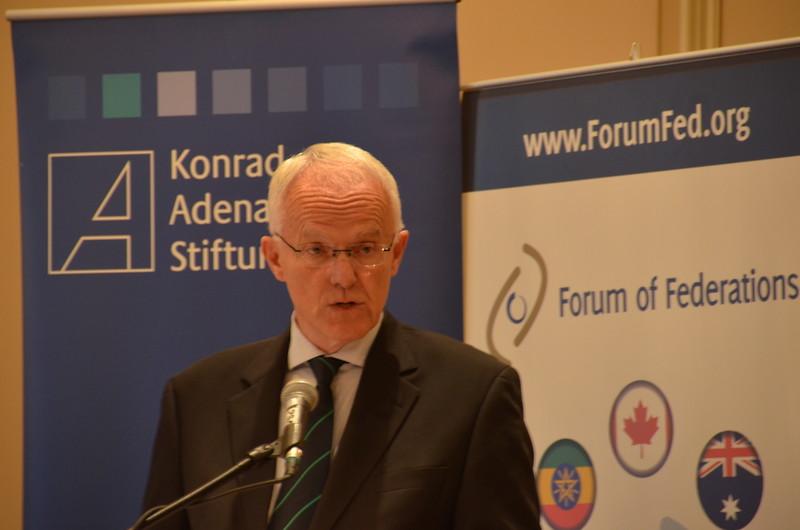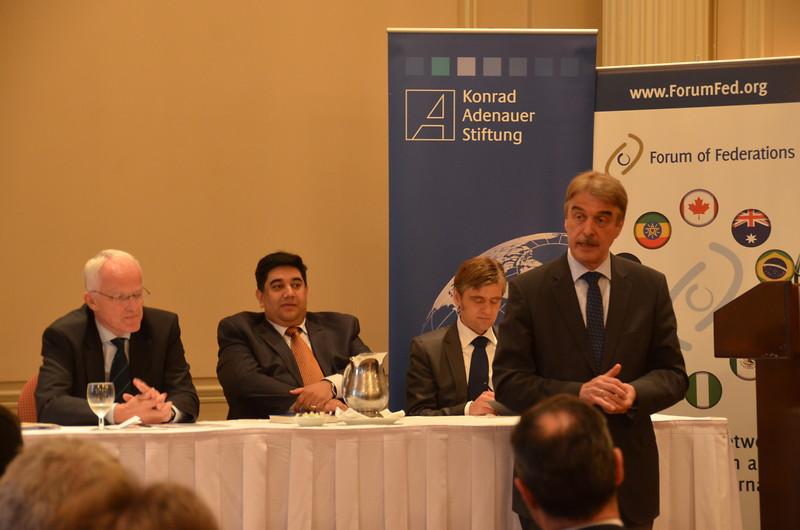Event reports
Dr. Rüttgers gave remarks on current developments in the European Union for an audience of 70 members of Canada’s international community, representatives of think tanks, and federal elected officials and staff in Canada’s capital city of Ottawa. Attendees also heard brief remarks from Werner Wnendt, Ambassador of the Federal Republic of Germany to Canada; Rupak Chattopadhyay, President and CEO of the Forum of Federations; and Dr. Lars Hänsel, Resident Representative of the KAS office in North America.
In the past months, the European project has been subject to major criticism, and Europe is going through a serious crisis of confidence. Dr. Rüttgers addressed some basic questions that need to be analyzed in a time in which voices from within and outside the EU question whether the EU will succeed in conquering the sovereign debt crisis. Questions of this nature – Are the EU member states able and willing to support each other in the crisis? Can the nature of federalism contribute to a stable Europe? – allowed for reflections on the current debate.
In his remarks, Dr. Rüttgers made clear that although the impacts of the crisis had been enormous, the fiscal and economic challenges encouraged people to develop a sense of unity and a common awareness of global security. Today’s problems can no longer be overcome by individual nations. It is important that people stop caring merely about their own welfare and instead start to think of the community as a whole.
Dr. Rüttgers also pointed out that the United States and Europe must “promote a world order that brings sound economic principles into harmony with social justice.” In order to sufficiently reshape the global economy after the crisis, democracy and social market economy have to be accepted and embraced as the highest values. Moral leadership advocating democracy, rule of law, and a free society are indispensable in building a new economic and social order. A common Europe and the North American-European friendship are fundamental for a new world order based on Western values, Dr. Jürgen Rüttgers said.
The ensuing dialogue complemented Dr. Rüttgers’ remarks on a common Western strategy. During a question and answer period, members of the audience asked Dr. Rüttgers about his views on Germany’s leadership role in the EU, current security issues affecting NATO, and the future of Canadian-German relations.
The ensuing dialogue complemented Dr. Rüttgers’ remarks on a common Western strategy. During a question and answer period, members of the audience asked Dr. Rüttgers about his views on Germany’s leadership role in the EU, current security issues affecting NATO, and the future of Canadian-German relations.





